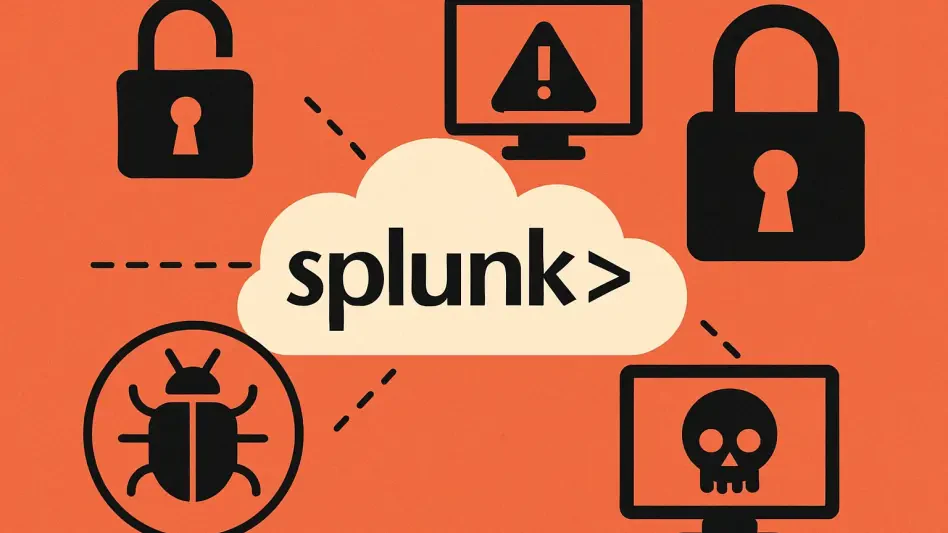In a world where digital security threats are increasingly sophisticated and pervasive, safeguarding enterprise platforms has never been more crucial. Recently, a critical zero-day vulnerability (CVE-2025-27218) has been identified in the Sitecore Experience Platform, specifically affecting versions 8.2 through 10.4. This alarming flaw, discovered by security firm Assetnote, is deeply rooted in insecure deserialization practices involving the deprecated BinaryFormatter class. It allows unauthenticated attackers to execute arbitrary code on unpatched systems, posing significant risks to organizations relying on Sitecore for their digital operations.
The Root of the Vulnerability
The vulnerability stems from the MachineKeyTokenService.IsTokenValid method within Sitecore, which improperly handles untrusted data. Specifically, the ThumbnailsAccessToken HTTP header is deserialized using a custom wrapper around the BinaryFormatter class, known as Convert.Base64ToObject. This critical misstep occurs before any decryption process, enabling attackers to inject specially crafted payloads into the system. By exploiting this flaw, attackers can craft malicious serialized objects using tools like ysoserial.net, targeting the WindowsIdentity gadget chain to execute operating system commands. These payloads are subsequently Base64-encoded and inserted into the ThumbnailsAccessToken header. The AuthenticateThumbnailsRequest HTTP processor, part of the httpRequestBegin pipeline, processes this header, leading to immediate deserialization and activation of the malicious payload without performing any authentication checks.
Given that Sitecore is the backbone of over 12,000 enterprise digital platforms globally, this vulnerability allows attackers to remotely execute code, completely compromise servers, and cause significant business disruptions. Notably, successful exploitation could grant attackers IIS APPPOOL\Sitecore privileges, paving the way for lateral movement within networks and data exfiltration. The root cause of this grave vulnerability lies in Sitecore’s flawed implementation of BinaryFormatter for serializing byte arrays, compounded by incorrect sequencing in the decryption process. Critically, Microsoft has long advised against using BinaryFormatter due to its inherent security risks, highlighting the avoidable nature of this vulnerability.
Mitigation and Preventive Measures
To address this critical issue, Sitecore has promptly released a patch and strongly urges users to upgrade to Sitecore 10.4 or apply the provided hotfix immediately. Beyond patching, it is essential for users to validate their HTTP pipelines to ensure there are no unauthorized uses of the BinaryFormatter. Regularly monitoring for unusual ThumbnailsAccessToken header activity is also a recommended practice to detect potential exploitation attempts early. This proactive approach not only mitigates the immediate risk but also reinforces the importance of adhering to secure coding practices and staying vigilant against similar vulnerabilities in the future. It underscores the necessity to update software components regularly and follow industry best practices for software security to prevent such exploitations from occurring.
Overall, timely patching and adhering to Microsoft’s guidelines on secure coding practices can significantly reduce the risk of falling victim to such zero-day exploits. By taking the necessary precautions and staying informed about potential threats, businesses can protect their digital platforms and sensitive data from malicious actors. This recent discovery serves as a stark reminder of the ever-present dangers in the digital landscape and the continuous need for robust security measures.
Insights and Future Considerations
In an era where digital security threats are growing more sophisticated and widespread, protecting enterprise platforms is more crucial than ever. Recently, there has been a discovery of a critical zero-day vulnerability (CVE-2025-27218) in the Sitecore Experience Platform, impacting versions 8.2 through 10.4. This worrisome flaw was uncovered by the security firm Assetnote, and it is deeply embedded in insecure deserialization practices involving the outdated BinaryFormatter class. This vulnerability enables unauthenticated attackers to execute arbitrary code on systems that have not been patched, presenting significant dangers to organizations that rely on Sitecore for their digital operations.
The impact of this vulnerability cannot be overstated, as organizations using these versions of Sitecore are at risk of severe security breaches. It underscores the pressing need for rigorous security measures and timely updates to mitigate potential threats. Businesses must prioritize security and ensure their systems are protected against such vulnerabilities to avoid catastrophic consequences that could arise from exploitation by malicious actors.







